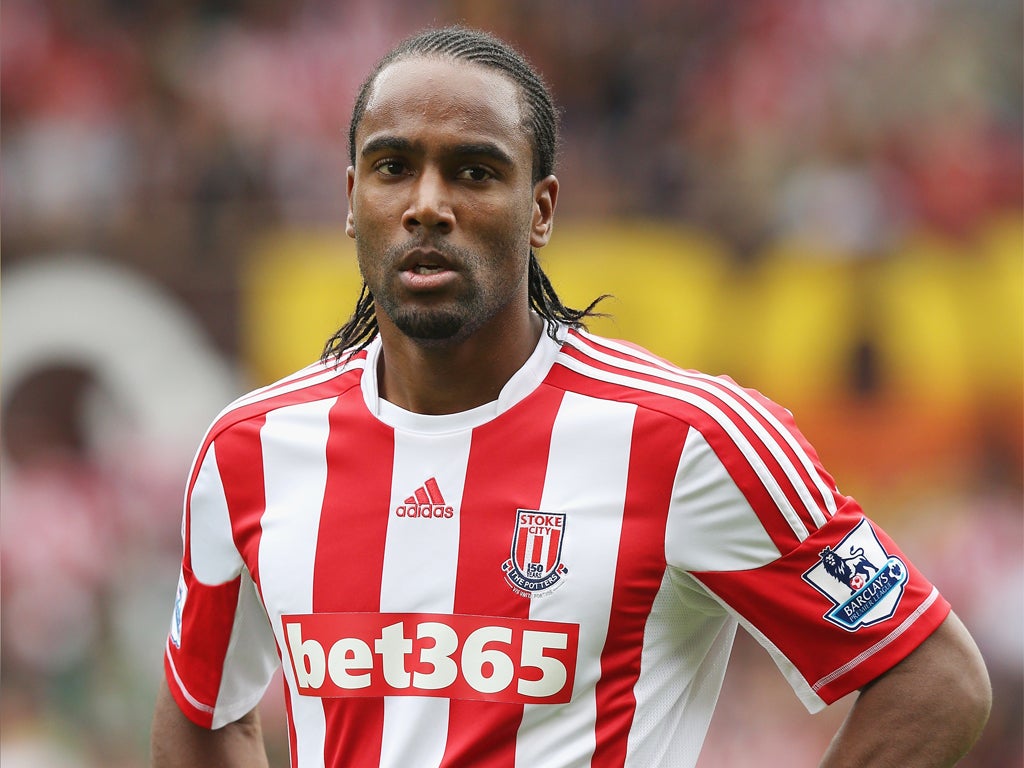The Last Word: It’s odds-on Cameron Jerome is not alone in being snared by football’s gambling culture
‘Having a flutter’ is part of British culture but it can cause problems

Your support helps us to tell the story
From reproductive rights to climate change to Big Tech, The Independent is on the ground when the story is developing. Whether it's investigating the financials of Elon Musk's pro-Trump PAC or producing our latest documentary, 'The A Word', which shines a light on the American women fighting for reproductive rights, we know how important it is to parse out the facts from the messaging.
At such a critical moment in US history, we need reporters on the ground. Your donation allows us to keep sending journalists to speak to both sides of the story.
The Independent is trusted by Americans across the entire political spectrum. And unlike many other quality news outlets, we choose not to lock Americans out of our reporting and analysis with paywalls. We believe quality journalism should be available to everyone, paid for by those who can afford it.
Your support makes all the difference.Cameron Jerome could be forgiven for being confused. On the one hand the Football Association operates Draconian measures limiting the involvement of players, managers and executives in football-related gambling; on the other the game is awash with betting advertising and sponsorship.
The Stoke City striker was this week fined £50,000 for breaking regulations. This follows an £18,000 fine and four-month ban (three months suspended) levied on Tottenham winger Andros Townsend. Neither player was accused of match-fixing or betting on games they were involved in.
Today Jerome, if selected, will pull on a Stoke shirt emblazoned with the logo of betting company Bet365, which is owned by Stoke’s chairman, Peter Coates. He might, given his fringe status at the Britannia, move later this month to a club in the Skybet Football League. And he will definitely, if he watches football on television, have to endure Ray Winstone imploring him to have a bet on the match being screened. Which, however, he absolutely must not do if the televised match is in a competition that Stoke are, were, or may be, involved in.
There are sound reasons for the FA banning players from gambling on matches they can influence. It is the first step towards match-fixing – as was shown in the 1964 scandal which led to 10 players being jailed – but their regulations go much further than that. A lower-division player, for example, who was injured when his team was knocked out of the FA Cup in the first round, would be punished if he put a tenner on the first goalscorer in the FA Cup final. He is “in breach of the rules because he is betting on a competition in which his club has competed during that season”.
Also guilty is a Premier League player who bets on a League Two match several months after he was on loan to a League Two club not involved in that game as “he has placed a bet on a game in a competition in which he has participated during that season”.
And a player cannot put a fiver on himself being first goalscorer in a match, even though he would obviously be trying to score even if he did not have money riding on it.
The message is clear: betting is suspect. Which makes it rather odd that the FA itself has an “official betting partner”.
The FA recognises that there is a “moral issue” in this but argues that having close relations with a bookmaker makes it easier to investigate malpractice. Since the FA’s lead sponsors include a brewery and a fast-food retailer it is also evident it is not particularly picky when it comes to choosing sponsors.
The all-pervasive influence of the betting industry is disquieting. “Having a flutter” is part of British culture but gambling can cause serious social problems. The Gambling Commission’s most recent survey, in 2010, estimated there were 450,000 problem gamblers in the UK – almost double that in 2007, with an average debt of £17,500 each. As the gambling industry, especially online, has continued to expand there may well now be a million problem gamblers, betting money which in many cases they and their families can ill afford to lose.
Some of these will be footballers. Even on Premier League wages, punting £50,000 at a time, as one player was doing at a casino last week, is a lot of money. It is feared those players whose gambling problems have come to light, such as Matt Etherington, Keith Gillespie and Michael Chopra, are the tip of a growing iceberg.
Newcastle United were castigated for signing a shirt sponsorship deal with a payday lender, but is this practice any more damaging to communities than gambling? But where do you stop? No one disagrees with the ban on cigarette companies sponsoring sport, but few raise an eyebrow at sponsors promoting alcohol. Yet that, too, can cause pain as well as pleasure.
English football’s problem with gambling appears to be less serious than that in cricket, where it is closely associated with match-fixing and spot-fixing, but evidence from elsewhere confirms the dangers are real. Yet the exhortation to have a bet seems to be everywhere.
Maybe someone in the game will take a moral stand on gambling; just don’t bet on it.
Join our commenting forum
Join thought-provoking conversations, follow other Independent readers and see their replies
0Comments